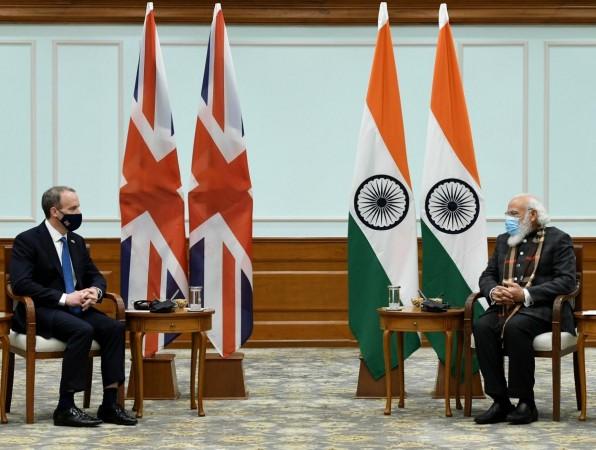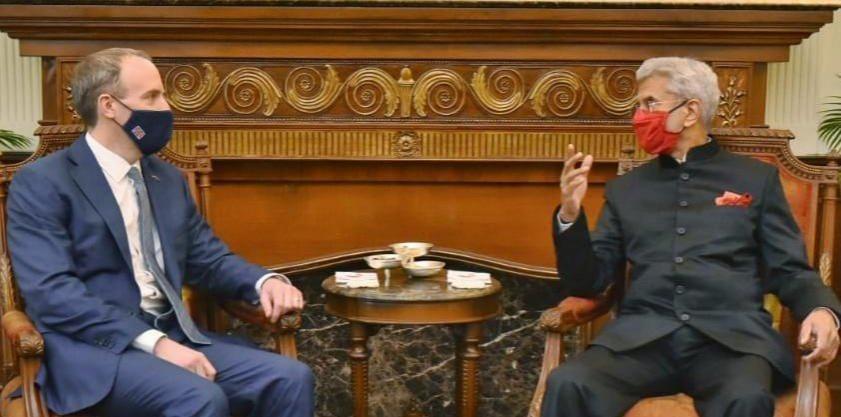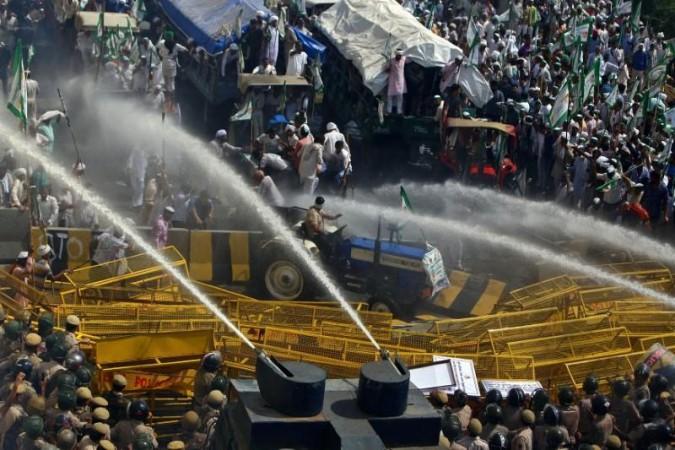As United Kingdom's Foreign Secretary Dominic Raab visits India, back in his country, Shadow Secretary of State for International Development Preet Kaur Gill wrote a letter to him over farmers' protests taking place in India.
In her letter, Gill expressed concerns over reports of the use of force against the protesting farmers and urged the UK Foreign Secretary to urge the Indian government to "allow peaceful protest to take place and play a positive role in promoting constructive civil engagement".
"In India, you will have seen reports and footage of the police brutality used against peaceful protestors in New Delhi. Water cannons and tear gas have been used to disperse crowds, and we have seen footage of state police beating elderly protestors with batons. There have already been several fatalities and many injuries among the farmers protesting," Gill, a Sikh for faith, wrote.
While the Foreign Secretary is in India, I have written to him about the #FarmersProtests and the unacceptable use of tear gas and water cannons against peaceful protestors.
— Preet Kaur Gill MP (@PreetKGillMP) December 16, 2020
The UK must stand up for democratic freedoms & work with partners to protect and champion them. pic.twitter.com/MV3sUEx0Fu
An MP from Birmingham Edgbaston constituency, Gill said that the "UK must stand up against repression and excessive use of force by authorities" to prevent the farmers' protests.
"I am writing to you to ask that while you are in India you use the opportunity to make representations to the Government urging them to allow peaceful protests to take place and play a positive role in promoting constructive civil engagement," she wrote.
She also requested Raab for a meeting to further discuss the situation in India regarding the farmers' protest and steps being taken by the UK government.
UK Foreign Secretary visits India
Raab kicked off his official visit to India on December 14 and will fly back to London on December 18, winding up his four-day tour.
During his visit, Raab has met External Affairs Minister S Jaishankar and Prime Minister Narendra Modi. Interacting with the press after his meetings, the British Foreign Secretary said that he discussed the situation arising out of the farmer protests with Jaishankar and underlined that India's politics is UK's politics too.

"I discussed the situation with Foreign Minister Jaishankar and obviously, we respect the fact that the reforms going through your system here are domestic reforms. Of course, they have elicited the protests that you refer to, and your politics, in some sense, because of the Indian diaspora in Britain, is our politics," he told reporters in New Delhi on Wednesday.
He further said, "But I think, India, as well as having a market-driven economy, also has a vibrant heritage of peaceful protests and vigorous debate, and we watch that with interest and we respect it."

Farmers protest in India
Farmers' protest against the three new laws entered Day 22 on December 17 at the borders of Delhi. Thousands of farmers are camping at the borders of the national capital at several entry points, demanding that the government repeal the new laws and make a law on Minimum Support Price (MSP).
After several rounds of talks failed to achieve any breakthrough, farmers unions announced to intensify their protest. They organised a Bharat bandh on December 8 and blocked highways connecting Delhi with other neighbouring states, and staged hunger strikes at several places earlier this week.

Lakhs of farmers are protesting in Punjab, Haryana, Rajasthan, and Uttar Pradesh among other states against the three farm laws passed by the Parliament in September this year.
On December 16, a priest allegedly shot himself dead in Kundli near Singhu border where farmers are protesting. In a suicide note, he wrote that he was pained at the situation of farmers.









